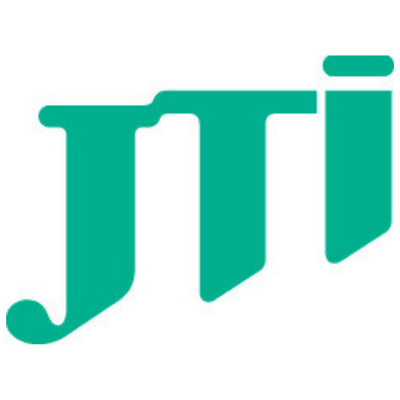The International Business Chamber of Cambodia (IBC) hosted its flagship annual open meeting on January 15, 2025, at the Rosewood Phnom Penh. The event brought together key leaders from nine significant industries to discuss Cambodia’s economic trajectory and the challenges and opportunities awaiting in 2025.
Tourism Recovery Grows but Faces Challenges with Angkor Visitor Numbers
Jacques Guichandut, Founder and Managing Director of All Dreams Cambodia, revealed that tourism arrivals have surpassed pre-pandemic levels by 4%, but a disconnect remains between total arrivals and key tourist sites like Angkor Wat. Only 1.4 million out of the projected 6.7 million international visitors for 2024 have engaged with flagship attractions.
Guichandut noted barriers such as underutilized infrastructure at Siem Reap’s new airport and confusion caused by the E-Arrival card system. “Streamlined processes and strategic marketing are essential to enhance Cambodia’s tourism offering,” he emphasized.
Opportunities lie in targeting new source markets such as the Middle East and India, as well as leveraging projects like the Techo International Airport to improve accessibility. Ecotourism and luxury wellness tourism are also poised to expand Cambodia’s appeal.
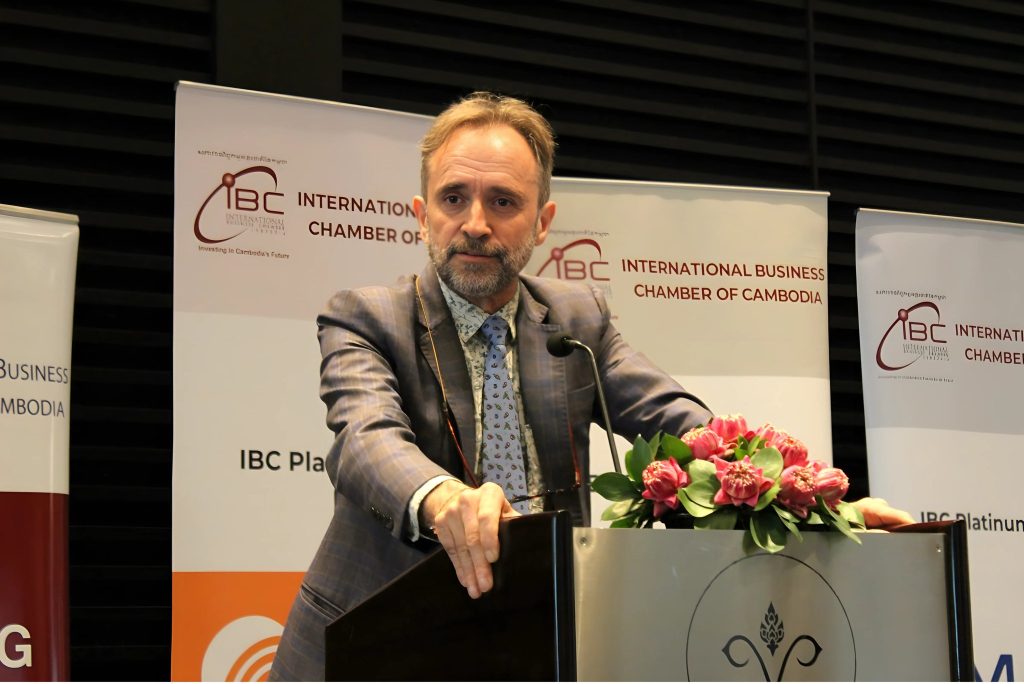
Uneven Healthcare Access Drives Demand for Private Sector Solutions
Ms Pauline Tan of The Sing-Specialists Medical Centre presented the challenges of Cambodia’s healthcare system, highlighting uneven access to quality care, especially in rural areas, and the rising prevalence of non-communicable diseases (NCDs). Despite recent public hospital upgrades and private health insurance growth, these gaps remain significant.
The healthcare sector is increasingly turning to digital solutions like electronic medical records (EMR) and telemedicine to improve efficiency and access. “These technologies can reduce costs and enhance patient care while improving reach,” Ms Tan stated.
With demand for private healthcare services expected to grow, standardizing specialist training and fostering partnerships between public and private providers will be crucial. Competition between providers is set to intensify, driving innovation and service differentiation.
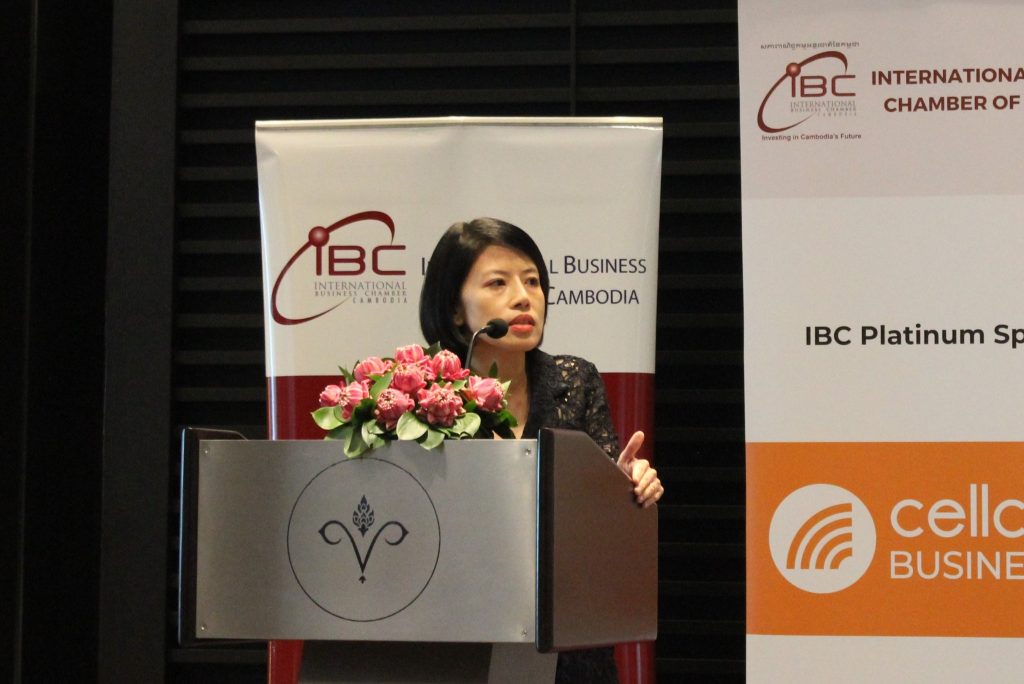
Energy Sector Transformation Accelerates with Renewables and EV Projects
Dinah Kumar, Country Chair of TotalEnergies Cambodia, highlighted the sector’s shift toward clean energy, with 23 projects totaling $5.79 billion reviewed by the Royal Government of Cambodia (RGC) for 2024 to 2030. The country is on track to achieve 70% clean energy by 2030, driven by solar, wind, and the construction of Cambodia’s first EV truck assembly plant in Krakor District.
While progress is being made, Kumar pointed out lingering concerns about reliance on biomass and the need for robust EV charging policies. “Infrastructure investment and policy clarity are critical for supporting Cambodia’s green transition,” she stated.
Opportunities exist in infrastructure development, energy audits, and capacity building. Kumar noted that these investments would have a ripple effect on sectors like automotive as EV policies are finalized.
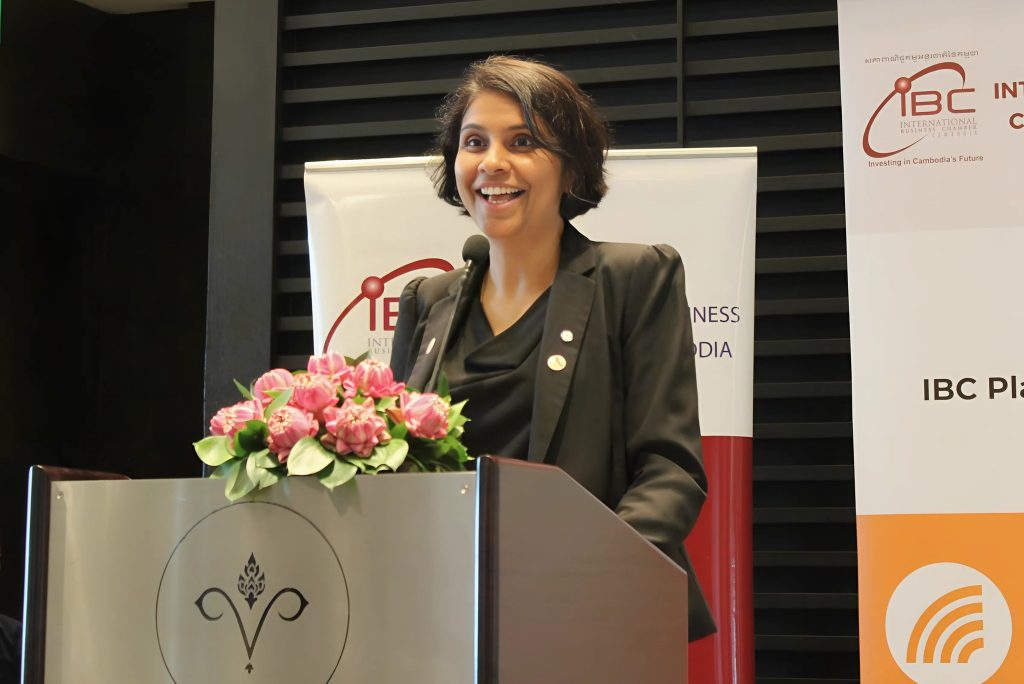
FMCG Sector Embraces Responsible Advertising Amid Regulatory Shifts
Mike Vongsykeo, Chief Operating Officer of S Liquor, discussed the FMCG sector’s evolution, driven by regulatory changes and shifting consumer preferences. Initiatives such as responsible alcohol advertising and e-labels on bottles are becoming industry norms, while rising health consciousness is fueling demand for low- and zero-alcohol products.
Vongsykeo flagged potential challenges, including economic downturns, bans on alcohol advertising, and illicit trade. “Investing in unique product experiences and adapting to consumer preferences will be key to navigating these challenges,” he explained.
Opportunities also lie in developing a robust liquor regulation framework that balances industry growth with public health priorities.
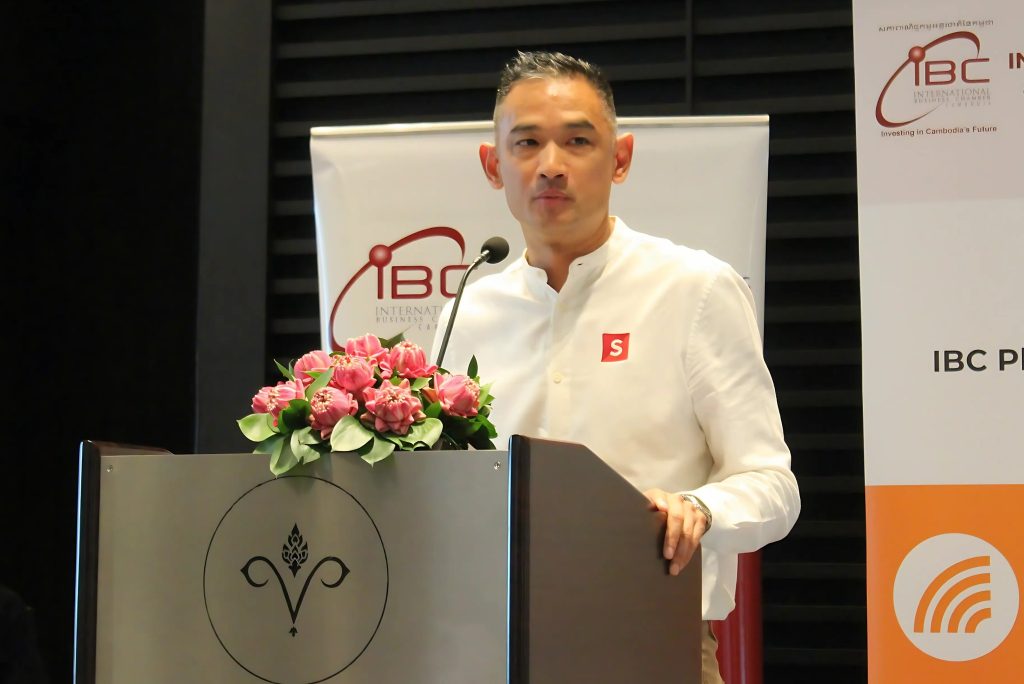
Manufacturing Sector Balances Risk and Opportunity Amid Global and Domestic Pressures
Devin Barta of AHF Products highlighted pressures and uncertainty facing Cambodia’s manufacturing sector. Globally, tariff risks, supply chain disruptions, and shipping costs remain concerns, while domestically, skilled labor shortages and tax uncertainties pose challenges.
Despite these hurdles, Barta identified promising opportunities in diversifying supply chains and exploring the other markets. “Decoupling supply chains can deliver cost savings and quality improvements,” he noted. The sector is also exploring skill development programs and infrastructure improvements to enhance competitiveness.
Looking ahead, solar capacity charges and the introduction of satellite internet services are expected to play a transformative role in addressing operational challenges and boosting efficiency.

Link to Article: https://cambodiainvestmentreview.com/2025/02/03/ibc-industry-views-and-outlook-for-2025-an-overview-of-9-major-sectors-in-cambodia-part-2/




